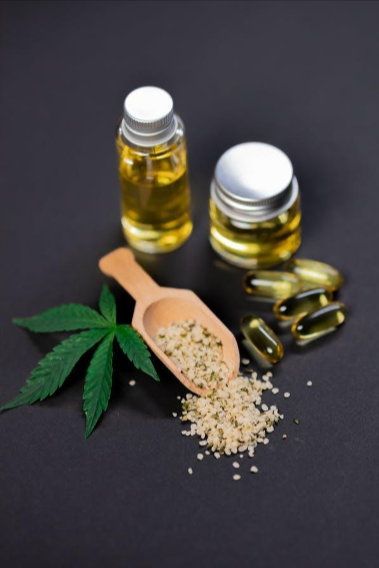What is CBD? How does it work? What are its effects? This article will explore these terms and explain their relevance. CBD is an abundantly available natural compound that is derived from cannabis.
Many people have been using it for centuries to treat a variety of conditions. Some of the most common ailments treated with CBD products include glaucoma, insomnia, and chronic pain. In addition to being an antioxidant, CBD is also a powerful neuroprotectant and anti-inflammatory. This also explains why more users are growing their own cannabis at home with marijuana nutrients.
Cannabinoid
While cannabis has been used for thousands of years for its medicinal properties, scientists have only recently begun to identify the various compounds found in it. These compounds, called cannabinoids, interact with our bodies’ natural systems. CBG is one of these compounds. Research into CBG and its effects on the body is still in its early stages, so there is still much to learn about the compound’s properties. However, the compound’s effects are beneficial in promoting the function and efficiency of our body’s natural systems.
The major pharmacological action of CBD and CBG in skin is the inhibition of inflammatory signals. While both CBG and CBD inhibit the expression of pro-inflammatory and pro-aging genes, they act in different ways on skin cells. CBD reduces the appearance of redness, and CBG improves skin barrier function. Further, both CBG and CBD inhibit oxidative stress and inflammation in HDFs.
Neuroprotectant
CBD and CBG are two compounds found in cannabis that have potent neuroprotective properties. Both have shown promise in a number of research projects, and CBD is particularly helpful in fighting life-threatening staph infections. CBG has also been shown to have neuroprotective properties, and it is thought that it may help in the treatment of Huntington’s disease. Both CBD and CBG have a range of other uses, and are both valuable in their own right. An excellent management option for those struggling with neurological diseases is a CBD patch. These work in a similar fashion to nicotine patches, by delivering CBD directly into the bloodstream. The delivery method is also consistent across a 24 hour period, meaning that there are no peaks and troughs, as is the case with CBD oil or CBD capsules. You can find the most popular CBD patches in Europe on the website of Cannacares. They also offer a subscription service, allowing you to save 20% off each order!
When taken in appropriate doses, CBG prevents enzymes from breaking down anandamide, a compound responsible for the production of dopamine. Dopamine has positive effects on mood, reward, appetite, and sleep. CBG also protects the nervous system from damage caused by various illnesses, including Alzheimer’s disease, multiple sclerosis, diabetes, and Parkinson’s disease. CBG has numerous applications in human health, from improving sleep to preventing seizures.
Stimulant
The study showed that CBG induces an increase in feeding frequency and latency, which are consistent with stimulating the appetitive and consummatory components of feeding behavior. However, the stimulant effect of CBG was only significant on the cumulative size of the first and second feedings. The increased frequency of feeding is responsible for the increase in consumption, and the duration of individual feedings does not support this theory.
The dose of CBG was determined in a study using rats. A concentration of 240 mg/ml was diluted in sesame seed oil and then given orally to rats. Rats were used that weighed between 200 and 225 grams at delivery. They were kept in humidity and temperature-controlled rooms and fed standard laboratory chow. The doses of CBG were adjusted to achieve the desired effects.
Anti-inflammatory
Novel CBG derivatives have a wide range of therapeutic benefits, including anti-inflammatory, analgesic, and anti-obesity properties. Chronic inflammation contributes to the pathogenesis of several diseases, including cardiovascular and gastrointestinal conditions, obesity, and asthma. Inflammation also plays a role in metabolic disorders such as diabetes and cancer. Moreover, chronic inflammation is associated with the development of autoimmune diseases and neurological degeneration.
Our immune system evolved to protect our bodies from foreign organisms and substances. However, a dysregulated immune response can result in different pathological conditions, including diabetes, cardiovascular disease, and obesity. This has prompted western medicine to introduce an array of drugs that target the immune system. One of these is CBD. CBD is a natural compound derived from cannabis. Its anti-inflammatory effects are well-established, but it also has a long history of side effects
If you’re looking for something more potent, grow the best autoflower strains. These strain seeds fit the needs nicely, producing potent buds, productive plants.
Improves concentration
CBD has been shown to enhance focus and energy levels, while cannabigerol, also known as CBG, is also known to have many other benefits. While CBD is the most well-known of these compounds, cannabigerol has recently begun to become more popular as users have reported positive effects. Its effectiveness in enhancing focus and energy is undisputed, and research continues to be conducted on this compound.
This compound is not converted into cannabinoids in the human body, so it is not metabolized by the body. In other words, it is not metabolized into opiates, tetrahydrocannabinols, or endocannabinoids. However, studies have shown that CBG can boost the brain and improve concentration levels. Further studies are needed to determine the precise benefits of CBG for a specific health condition.
Reduces acne
Research has shown that 0.1% CBG in a serum significantly improved skin hydration levels, when compared to vehicle-treated skin. Using a TEWL (transepidermal water loss) instrument, CBG-treated sites had lower TEWL values than vehicle-treated skin. This increased hydration and barrier function was associated with a reduction in acne lesions. Reduced TEWL readings are associated with a reduction in the appearance of redness and inflammation on the skin.
Several research studies have shown that CBD and CBG have broad skin health-promoting properties. While C-B-D is widely advertised as a cure-all, CBG’s antioxidant and anti-inflammatory properties are more effective. CBD and CBG both contain the same chemical structure and are derived from the same plant. CBD and CBG must be used in the appropriate potencies for maximum results. While CBD and CBG are both powerful anti-inflammatory and antioxidant, CBG is more effective in preventing acne.








